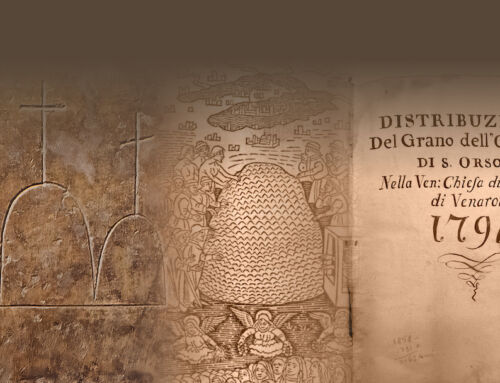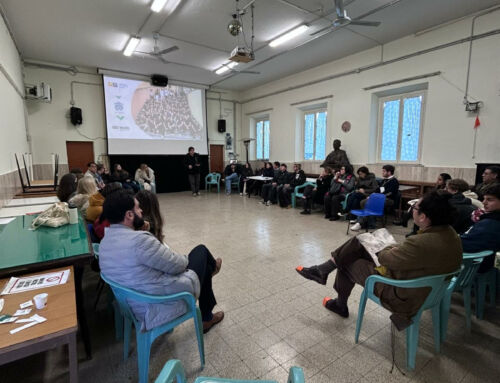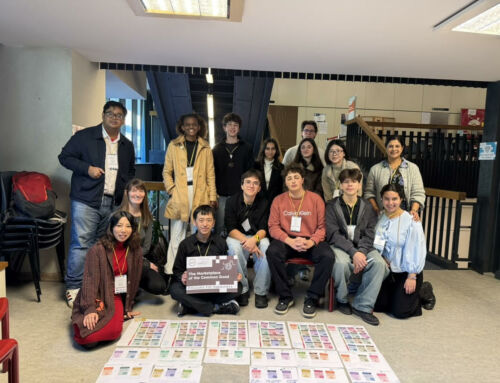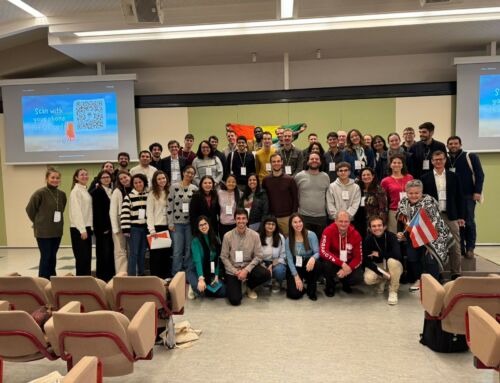A vaccine for all. The Common Good our world needs now
(ENGLISH TEXT ONLY)
Vaccines are a critical new tool in the battle against COVID-19. Working as quickly as they can, scientists from across the world are collaborating and innovating to bring us tests, treatments and vaccines that will collectively save lives and end this pandemic, “but most people in low and middle income countries still must watch and wait”.
Salvatore Pirri, research fellow in Health Economics and Data analysis at the Sant’Anna School of Advanced Studies, will join the round table A vaccine for all. The Common Good our world needs now with Jeffrey Sachs, Catherine Belzung and Pasquale Ferrara, organized by United World Week. Salvatore is one of the young economist committed in The Economy of Francesco.
We will meet Salvatore. Here you can find this very interesting dialogue.
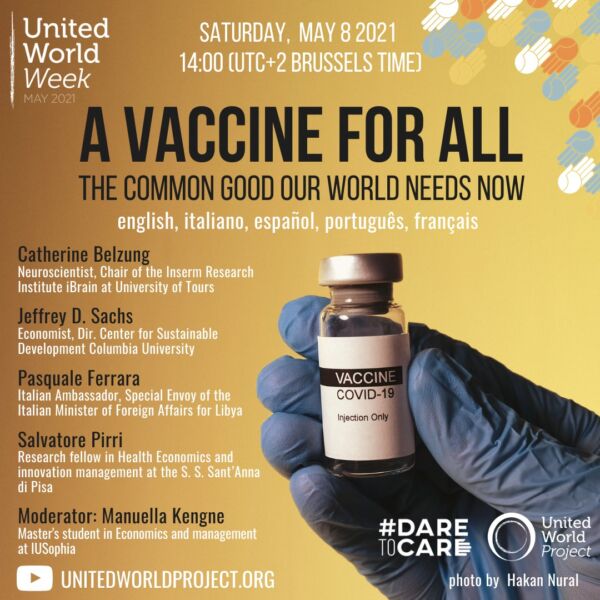
What is the current situation with the vaccination program against Covid19?
The COVID-19 pandemic has led to a dramatic loss of human life worldwide and posed an unprecedented challenge for public health, the economy, and the global movement. The economic and social disruption caused by the pandemic pushed millions of people at risk of falling into extreme poverty. However, thanks to unprecedented scientific efforts, Covid-19 vaccines are now being distributed in more than 70 countries globally, with health workers, elderlies and vulnerable people placed among the first groups to receive them. Covid-19 vaccines provide a pathway out of this pandemic and prevent huge economic losses, which may trigger disparities and wealth inequalities across the society. Vaccine pharma companies estimated to make sufficient doses to cater to one-third of the world population by the end of 2021. Most of which have already been pre-ordered by developed countries. This means lower-income countries may need to wait until 2023 for the vaccine. Rich countries also have the better medical infrastructure and more resources to provide vaccination to their citizens by facilitating mass vaccination programs. So, such a delay in supplying the vaccine doses is unacceptable. And for several reasons. It is unacceptable for health reasons, because virus variants are more likely to appear in places where the outbreak is out of control, increasing the number of sick people and making vaccines less effective or even worst. For ethical reasons, moral responsibility doesn’t stop at the country’s borders. The value of a person’s life isn’t dependent on where they live. It is unacceptable also for economic reasons. Vaccine nationalism could cost the global economy up to $1.2 trillion a year in GDP. Until the poorest countries cannot access vaccines, the world could lose between $60 billion and $340 billion a year in GDP. For all these reasons, we must sustain vaccine equity as the primary action.
How can we ensure vaccine equity?
There are several ways to sustain equitable access and avoid vaccine nationalism. The COVAX program, is a brilliant example of how we, as a community, ensure a fast and fair access to Covid-19 vaccines globally. The program is co-led by Gavi, the Coalition for Epidemic Preparedness Innovations (CEPI) and WHO, aiming to accelerate the manufacture of COVID-19 vaccines, and to guarantee fair and equitable access for every country in the world. Another example is what pope Francis shows us, pushing for equitable vaccination distribution and promoting concrete actions like the so called “vaccino sospeso” (suspended vaccine) to homeless and needy people getting free COVID-19 vaccines from his Vatican charity during the last Easter. Any community or organization can propose and campaign to raise additional found to support one of those activities. A key factor that could shape the willingness of governments to make more available for low-income countries is their public’s willingness to support donations and proactive policy.
What people can do to sustain equitable access and distribution of vaccines globally?
Well.. that’s a complicated question to answer! Too often, as individuals, we feel so powerless against big global challenges and their complexity. Nonetheless, we have many examples that point us the direction, telling how important our practical contribution is in dealing with these global challenges like the Covid-19 vaccine equitable access. A fundamental step to do is in our mindset and try to shift out goodwill in actions. Shifting from intention to action means embracing and promoting concrete action in our daily life, for instance, stopping to be indifferent to what happens around us and relying on the idea that all our acts make a difference. Propose and ask the policymakers to sustain global policies like the COVAX program or donation like for the vaccino sospeso activity, captaining on social media platforms for or sustaining found rising are all small actionable to make concrete effects. Global equitable access to a vaccine, particularly protecting health care workers and those most at risk, like vulnerable populations, is not just an ethical duty but is the only way to mitigate the pandemic’s public health and economic impact. The health crisis, the financial crisis, and the ecological crisis are all interconnected, and we could look at all these issues and relationships and see how to integrate responses to reshape a new fair and inclusive economy.


